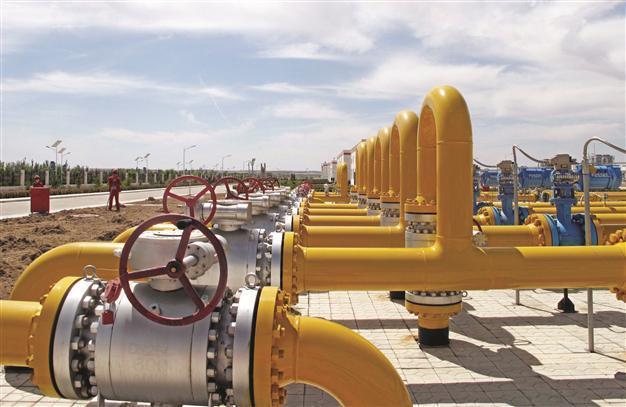Turkey good at refixing gas prices: Energy agency
ANKARA - Reuters

‘Turkey was quite good at renegotiating the price,’ International Energy Agency Executive Director Maria van der Hoeven told reporters. REUTERS photo
The International Energy Agency (IEA) came out in favour of the spot gas market on late Wednesday over contracts that link gas to oil prices, citing Turkey as an example of a successful renegotiation.
Russian gas export monopoly Gazprom clinched a long-term deal last November to export gas to private companies in Turkey, breaking a previous impasse in gas trade following its price dispute with state gas company Botas.
“Turkey was quite good at renegotiating the price,” IEA Executive Director Maria van der Hoeven told reporters. The IEA advises 28 industrialised countries on energy policy.
Many European utilities and other gas buyers receive most of Russia’s piped gas supplies under long-term contracts that link gas prices to the price of oil.
Oil prices have been high compared with spot gas and electricity prices, making the Russian gas expensive. Utilities have been trying to push Gazprom to renegotiate prices and link more of its gas to the spot market.
“What we see is a majority of the gas prices are based on oil indexes, and the question is if that’s the right way to go,” van der Hoeven said.
“It is important to have a well-functioning spot market, and that’s where we see a huge opportunity as Turkey is ... a transit country,” she added.
Turkish spot gas market
Turkey imports natural gas mainly from Russia, Iran, and Azerbaijan to fuel around 45 percent of its heat and power needs, according to the IEA.
Establishing a spot gas market is among Turkey’s medium-term plans, particularly after its planned Energy Exchange becomes operational in September and it launches trading in electricity futures and derivatives.
Turkey is set of overtake Britain within a decade as Europe’s third-biggest electricity consumer at its market grows, and it has been working to diversify its energy mix.
Plans call for pipelines to start carrying Azeri gas through Turkey towards the end of this decade. Turkey would take 6 billion cubic metres (bcm) for its own market and send another 10 bcm on to Italy via Albania and Greece.
The government also has clinched deals with Russia’s Rosatom and a Japanese-French consortium to build nuclear power plants.
